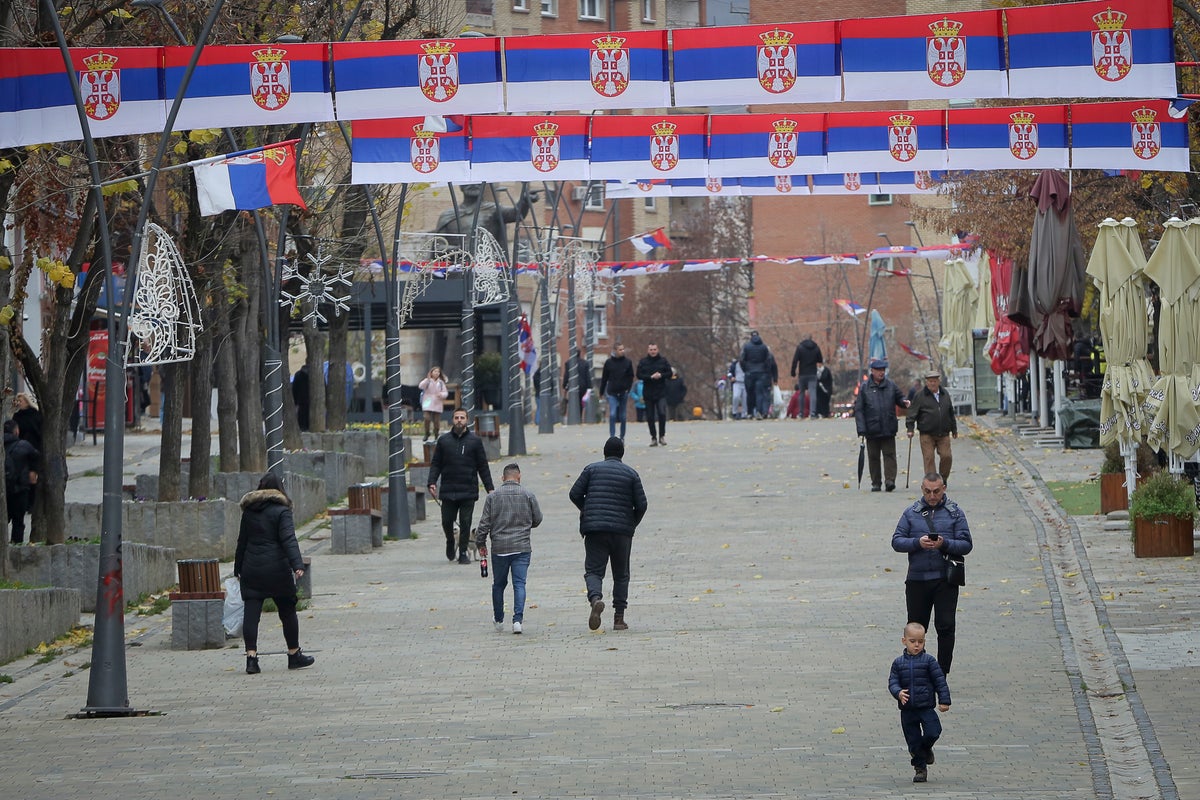
Kosovo on Saturday postponed a local election due Dec. 18 in four municipalities with a predominantly ethnic Serb population, in an effort to defuse recent tensions there that have also caused relations with neighboring Serbia to deteriorate further.
President Vjosa Osmani met with Kosovo’s political leaders and decided to hold the vote in the northern municipalities on April 23 next year.
The election in Northern Mitrovica, Zubin Potok, Zvecan and Leposavic was due after ethnic Serb representatives resigned their posts in November to protest a decision by Kosovo's government to ban Serbia-issued vehicle license plates.
Serb lawmakers, prosecutors and police officers also abandoned local government posts.
Tension in the north has been high ahead of the scheduled vote. This week, unknown gunmen shot and wounded a Kosovo law enforcement officer, some election centers were damaged and shooting was heard in those municipalities.
Kosovo’s Interior Minister Xhelal Zvecla said Saturday that after the arrest of a former Serb police officer accused of attacking election centers and officials, some roads in the north have been blocked by “extremist groups.”
The Kosovar police presence recently was increased in those areas and the European Union’s rule of law mission, or EULEX has been present with its police officers too.
Kosovo proclaimed independence from Serbia in 2008. But Belgrade, supported by Russia and China, has refused to recognize Kosovo’s statehood.
Serbia’s prime minister said Friday the country’s leadership was close to demanding the deployment of their security troops to Kosovo, claiming lives of minority Serbs there were being threatened. The return of Belgrade’s troops to the former Serbian province could dramatically increase tensions in the Balkans.
Serbian officials claim a United Nations resolution that formally ended Belgrade’s bloody crackdown on majority Kosovo Albanian separatists in 1999 allows for some 1,000 Serb troops to return to Kosovo. NATO bombed Serbia to end the war and push its troops out of Kosovo.
NATO-led peacekeepers in Kosovo since the war would have to give a green light for Serb troops to go there, something highly unlikely because it would de facto mean handing over security of Kosovo’s Serb-populated northern regions to Serbian forces.
Kosovo Prime Minister Albin Kurti’s office said any such move from Serbia would be “an act of aggression” and an indication of “Serbia’s tendencies to destabilize the region.”
The European Union has warned Serbia and Kosovo to resolve their dispute and normalize relations to be eligible for membership in the bloc.
___
Llazar Semini reported from Tirana, Albania.







